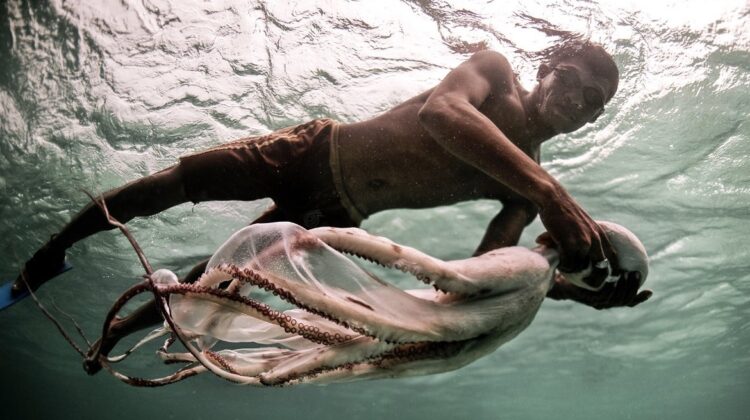
Meet the Bajau, the last of the true “Sea Nomads” of Southeast Asia. These remarkable people spend a staggering 60% of their lives underwater, diving for fish at depths exceeding 200 feet – all without the aid of scuba gear or bulky oxygen tanks. Their life is a testament to human adaptation and a deep connection to the ocean.
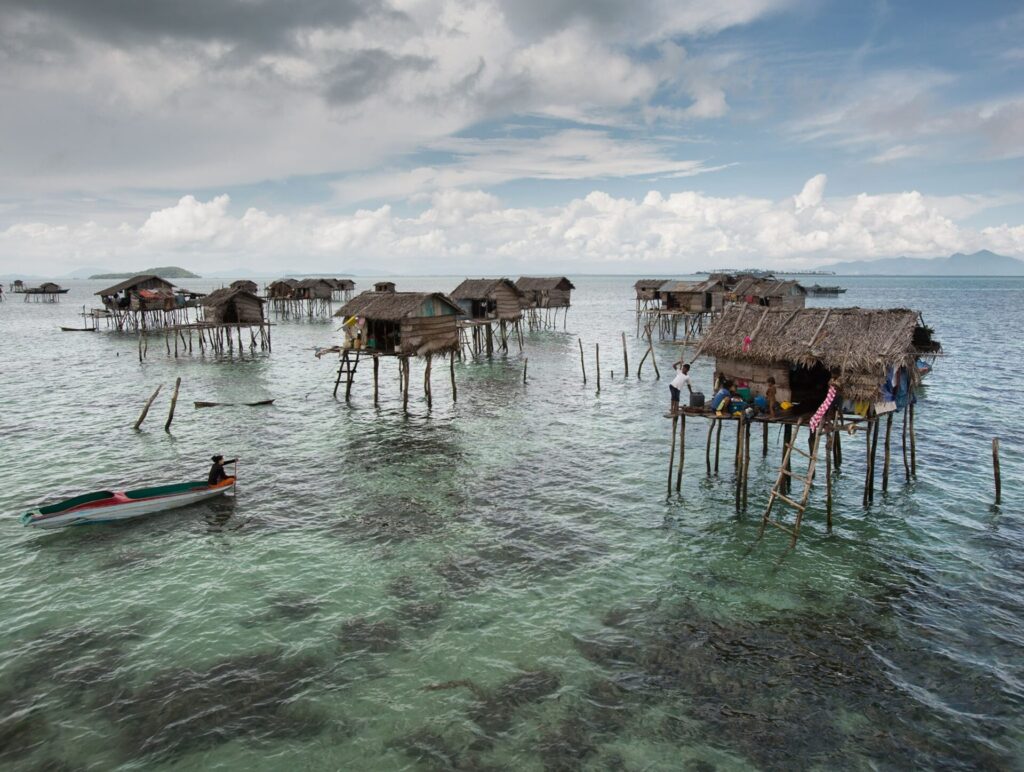
Untethered to land and without a fixed nationality, the Bajau have developed unique physiological traits to thrive in their aquatic world. Their spleens, for instance, are significantly larger than those of land-dwellers, allowing them to hold their breath for extended periods – up to 10 minutes according to some accounts. This exceptional breath-holding ability fuels their primary way of life – spearfishing.
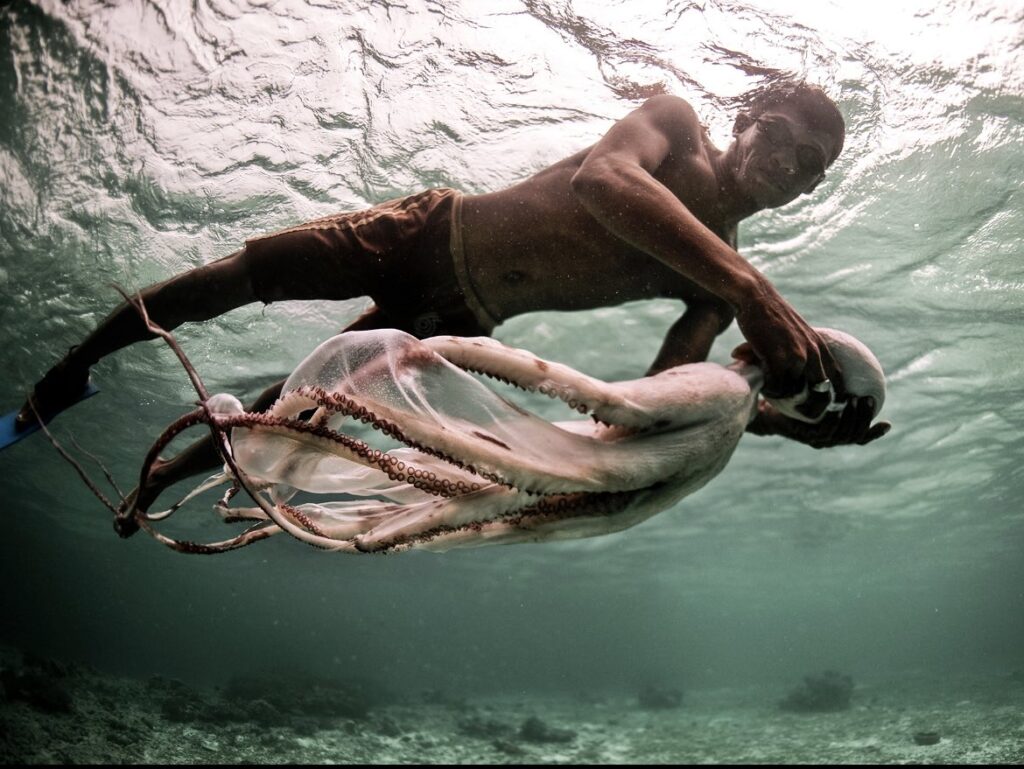
The Bajau diet reflects the bounty of the sea. They consume a diverse array of marine life, including not only fish but also fascinating creatures like sea cucumbers. This diet is likely a contributing factor to their remarkable health and well-being.
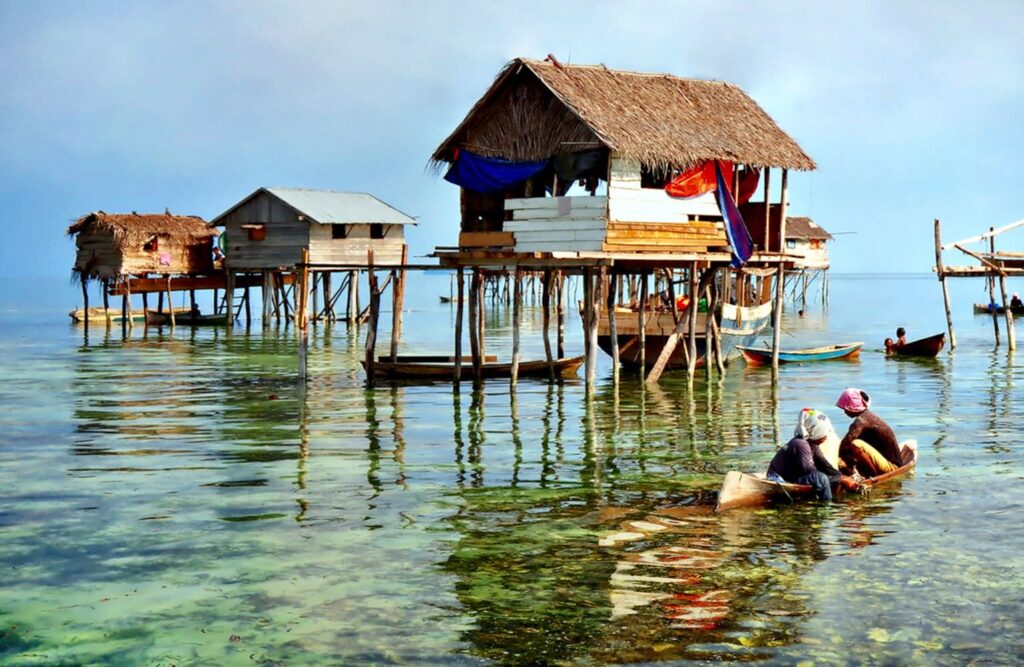
Beyond their physical adaptations, the Bajau possess a rich cultural history that is as diverse as their seafood platter. Genetic studies reveal a fascinating mix, suggesting intermarriage with local populations throughout their history. Their language and cultural practices have also likely been influenced by the coastal communities they’ve interacted with over generations.
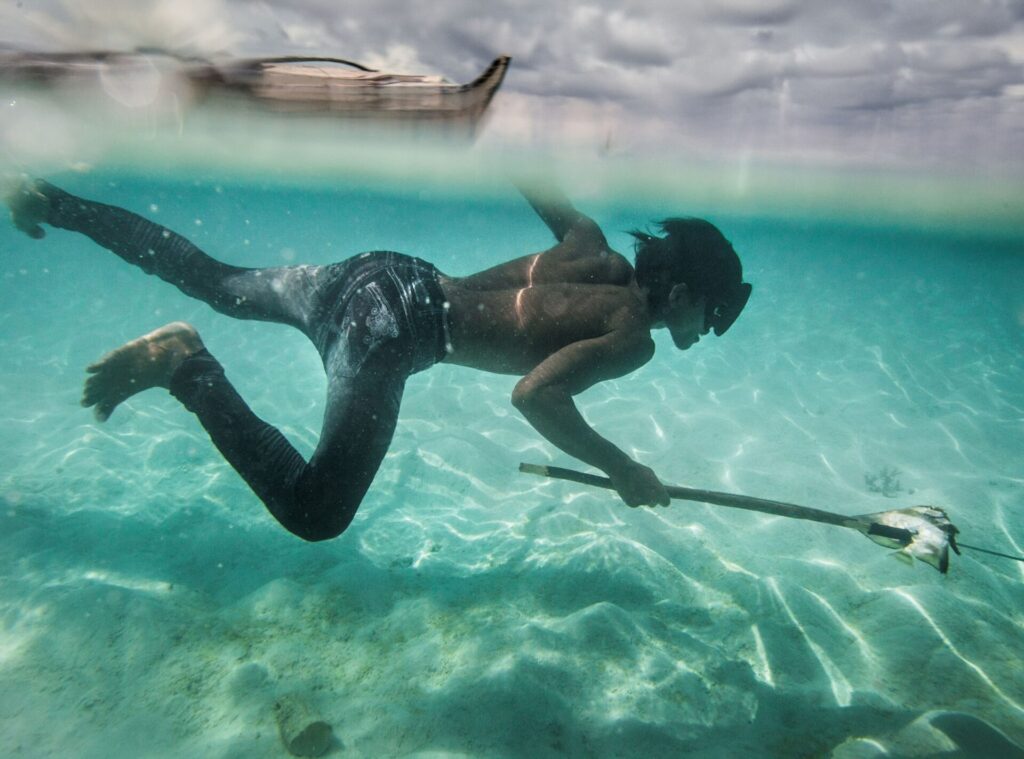
However, the Bajau’s unique way of life faces significant challenges. Despite their contributions to human culture and their undeniable connection to the sea, they are often targeted by insurgents and pirates who steal from them, extort them, and even resort to kidnapping and violence.
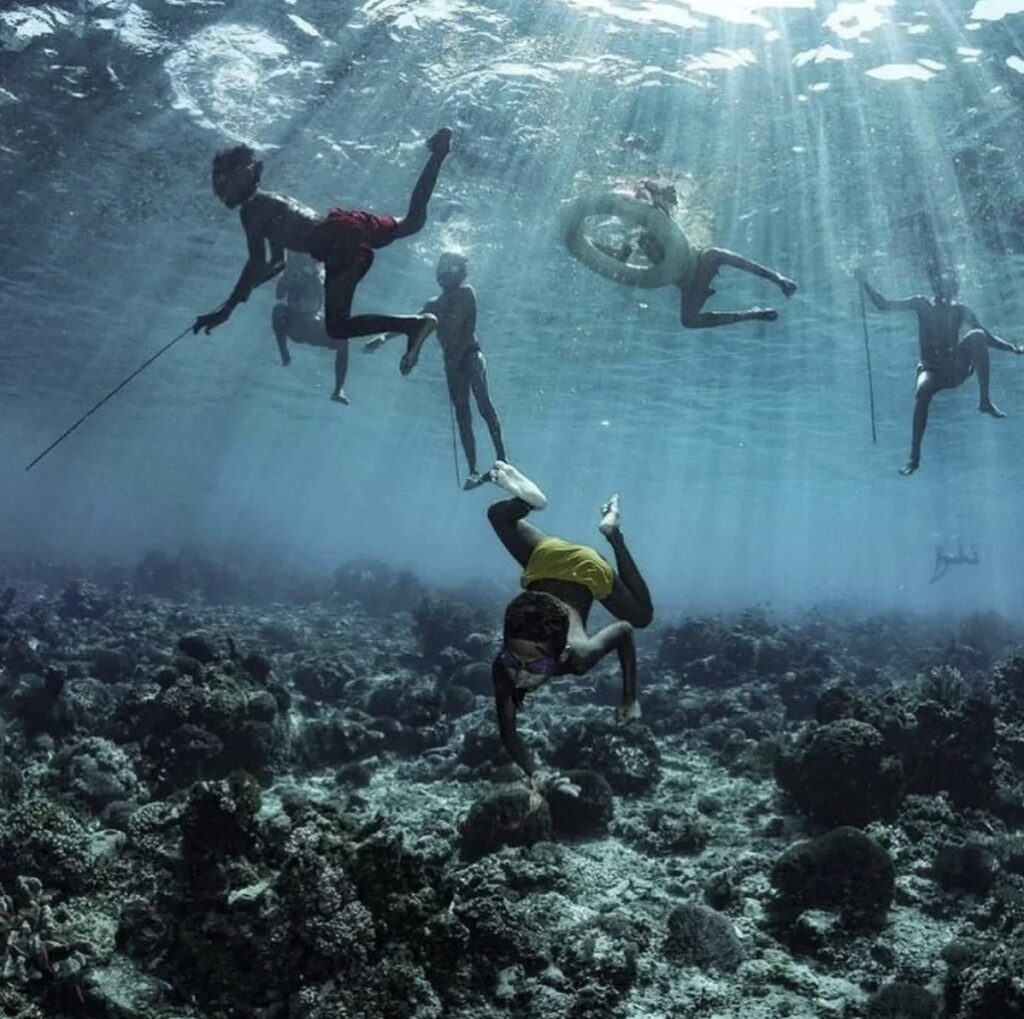
The ancestral roaming grounds and fishing areas of the Bajau people traverse the maritime borders of the Philippines, Malaysia, and Indonesia. This makes them, in a very real sense, international citizens of the sea. Their story is a powerful reminder of humanity’s deep connection to the ocean and the urgent need to protect both these remarkable people and the marine environment they call home.

Leave a Reply